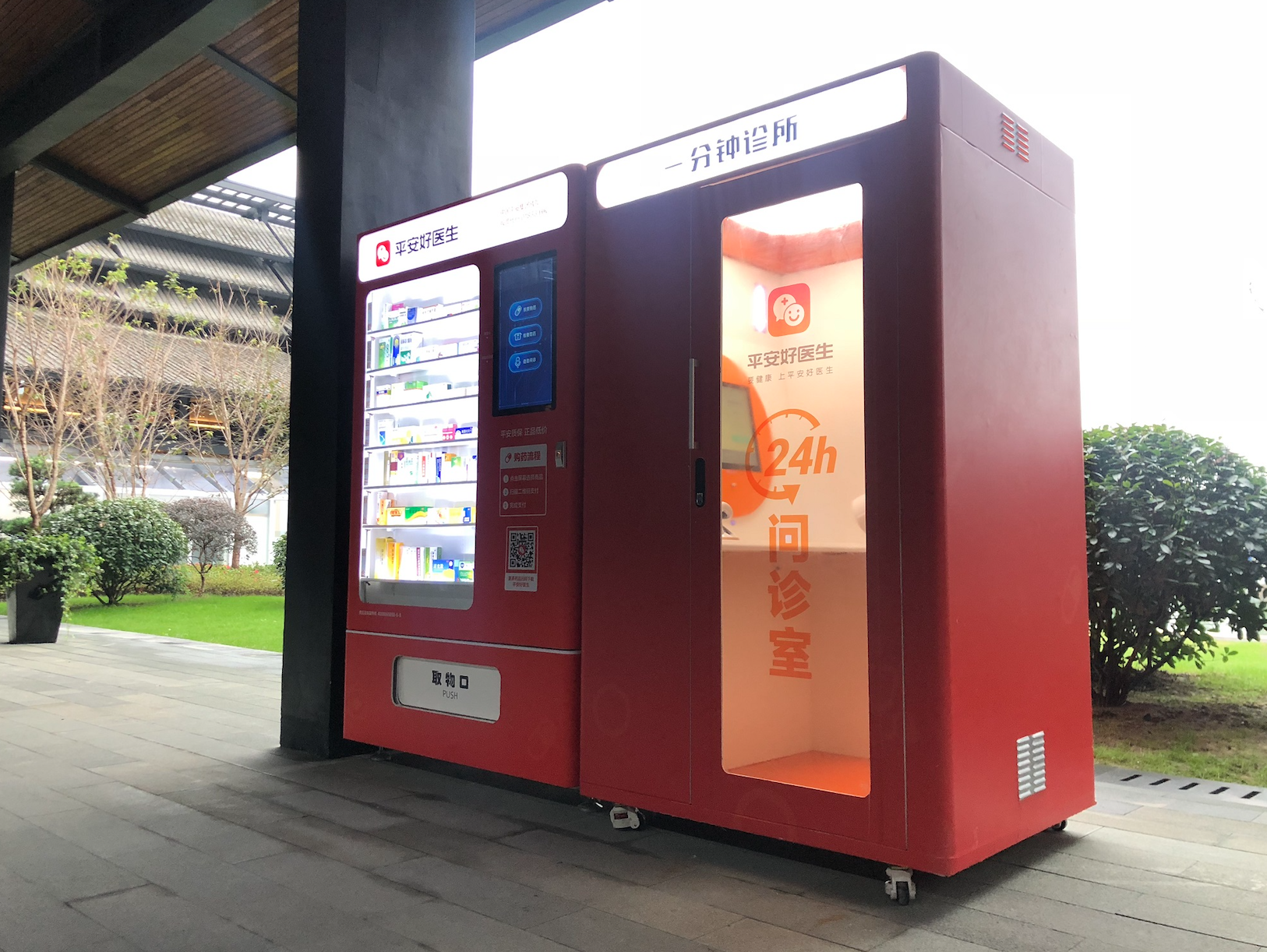Chinas AI doctor-bot help each doctor treat 600-700 patients daily
By Line Heidenheim Juul
Chinese companies are ahead in utilizing AI to meet demand for health services, and they are expanding internationally.
What if medical consultations could only take seconds of health care workers time, and you could engage with a city of 11 million people on lock down? That is what happened in China, and it could come to your health care market too. The tech companies are turbo charging health tech during the Covid19, utilizing AI and chatbots to meet demands.
In China, more and more patients download an app, and get instant feedback on consultation. According to industry leader, Ping An Good Doctor (PAGD), their inhouse doctors and physicians could treat between 600-700 patients daily. They utilize an AI-bot, that does most of the initial interaction with the patient.
During the peak of the pandemic in China, PAGD saw an increase of 9 times more online consultations, 10 times increase in new app users and more than 1 billion visitors. Their main contender, Tencent Trusted Doctors (TTD), has seen similar growth, and there are a handful other platforms too. But these tech companies are not just focusing on the domestic market. PAGD is already highly active in Indonesia, Dubai and Japan. Now their AI-bot is being trained in English too, and was rolled out in the beginning of this month.
I recently met with PAGD to better understand how they are changing the industry and healthcare access for patients nationwide – and increasingly internationally. With more than 300 million users in China and 10 million recorded consultations overseas, and international collaboration with other key players like GRAB, they are well on the way to expand.
In China, they work with local governments and hospitals to collect data and train their AI. They also train local health professionals providing medical services in rural areas, and they set up 1-minute-clinics to address access to “over-the-counter” and prescription medicine.
During the Covid-19 peak, they engaged with almost 60 local governments in China to meet the demands of online consultation need and authentic knowledge about the symptoms and treatments options. The main competitors Tencent Trusted Doctors and Alibaba Health have taken similar initiatives, and in order to gain users during Covid19, several platforms incentivized services and lowered prices of consultations significantly.
How does it work?
PAGD is a data company first. On the surface PAGD has an app where users have direct chat access to diagnosis and consultations. The user will interact with an AI chatbot first, while one of the 1400 inhouse employed doctors with PAGD will approve the final diagnosis and treatment recommendation.
The direct collaboration with pharmacies allows patients to purchase subscription medicine directly on the platform, covered by their insurance too. Most recently the company started working with “offline” traditional hospitals, and can now refer patients directly. This is something Europeans are already familiar with from the traditional offline primary offline care.
But primary care does not exist in this way in China. This is what PAGD is trying to build. Digitalized and transferrable patient records have been a headache in the Western countries for years, and the health care sector in China has been hopelessly behind. But now it seems the digital tiger leaps taken by players such as PAGD will allow tech companies access to a data-set from initial diagnosis to final treatment, and local hospitals and governments methods to address the massive need for efficient treatment.
Ecosystems in health – and fintech
PAGD is not a single-standing company. It is part of the Ping An Insurance group. This tech giant can be compared to Alibaba in some ways. The ecosystem on data driven business models is similar. Ping An insurance is China’s largest commercial insurance company, but it has for years been building its ecosystem in fintech and health tech, with offerings such as PAGD and Ping An Bank.
Why is that so important to understand? The tech giants in China are now in a position where they can help with an urgent and necessary demand, but also gain wider access to data and have a freer legal playground. Combined with the sheer size and data input from the Chinese population this creates the biggest competitive advantage in creating AI-tech solutions to the global markets. Other countries in Europe are crippled by legal red tape, fragmented markets and a lack of integrated ecosystems.
PAGD’s Indonesia expansion has also exploded with the Covid-19 development, and more doctors were hired during the peak of the pandemic in February, when demand for online consultations doubled. PAGD has established an innovative collaboration with the “Uber-like” company Grab, that offer ride hailing, food-delivery and other services via their app in several South East Asian countries.
Grab Health was launched in the end of 2019 and is powered by PAGD solutions and distributed with Grabs massive userbase. Now the English-language AI is being trained and the goal is to roll it out in Q3.
Why does it matter for you and your business?
China is not only able to build emergency hospitals in 7 days. Companies are building ecosystems and collecting datasets for long term systems. They create products and services that can impact our markets too.
The tech companies in China are growing and expanding fast, and most global companies would be wise to observe them to understand potential global developments, especially in AI. The Chinese companies have an enormous advantage with massive domestic market share and access to capital and data.
Some companies in Europe or the US may find inspiration and opportunities in collaborating with these giants, or find that their competitor is no longer as far behind as they initially thought. In either case, whether you choose to look to China or not, Chinese companies will look in your direction.



